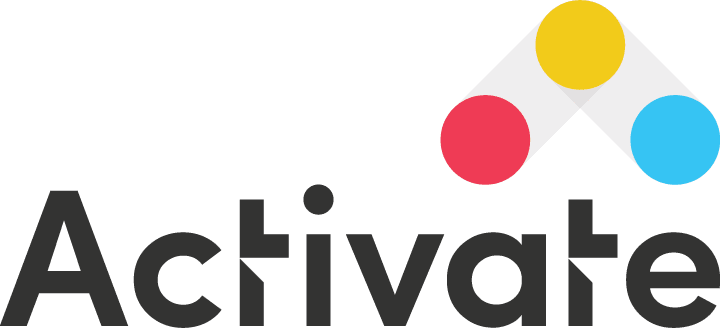Marketing campaigns enable businesses to build brand awareness and drive engagement. As technology evolves and consumer behavior shifts, your marketing strategies need to stay competitive.
Consumers are bombarded with information from various channels, so crafting and executing impactful marketing campaigns is both a challenge and an opportunity. Brands must leverage data-driven insights, understand consumer behavior, and employ innovative approaches to stand out in a crowded marketplace.
But what is a marketing campaign, and how can it help your business succeed? In this article, we’ll discuss the strategies and tactics that can unlock the potential of marketing campaigns, helping businesses navigate the complexities of the digital age and effectively reach their goals.
- What is a Marketing Campaign?
- Channels in Marketing Campaigns
- Key Components of Marketing Campaigns
- How to Create a Successful Marketing Campaign
- Measuring Marketing Campaigns with KPIs
- Compelling Marketing Campaign Examples
- Master the Art of Effective Marketing Campaigns
What is a Marketing Campaign?
A marketing campaign is the use of activities and tactics designed to promote a specific product, service, event, or brand over a defined period. The primary goal of a campaign is to achieve predetermined objectives, such as increasing brand awareness, driving sales, generating leads, or fostering customer engagement.
Key components of a marketing campaign include:
- Defining clear goals and objectives
- Identifying the target audience
- Developing a compelling message and creative assets
- Selecting appropriate marketing channels
- Determining the campaign’s timeline and budget
These components work together to create a unified and impactful marketing campaign strategy.
Channels in Marketing Campaigns
Many marketing campaigns are designed to engage audiences across channels and guide them through the customer marketing funnel. From the direct and personal touch of email marketing to the broader reach of public relations, each campaign type serves a unique purpose in driving brand visibility and customer interaction. Let’s take a look at some of the most popular types of marketing campaign strategies used in cross-channel marketing.
Email Marketing
Email marketing is a direct approach that involves sending promotional messages, newsletters, or updates to a group of recipients via email. An email nurture campaign can be used to nurture leads and drive conversions. Email marketing is also commonly used in e-commerce as a cart abandonment campaign.
Search Engine Optimization (SEO)
SEO is a digital marketing strategy that optimizes a website’s visibility in search engine results. By enhancing website content, structure, and relevance to specific keywords, SEO aims to increase organic traffic and improve search engine rankings.
Social Media
Social media campaigns leverage platforms like Facebook, Instagram, X , LinkedIn, and TikTok to connect with audiences, build brand awareness, and drive a customer engagement strategy. These campaigns involve creating and sharing content, running targeted ads, and fostering community interaction.
Direct Mail
Direct mail campaigns involve sending promotional materials, such as postcards, flyers, or catalogs, directly to a person’s mailbox. This traditional marketing approach can be highly effective when tailored to the preferences of the target demographic and combined with personalized messaging and compelling visuals.
Product Marketing
Product marketing campaigns focus on promoting and positioning a specific product or service. These campaigns aim to highlight the product’s unique features, benefits, and value propositions and address the target audience’s pain points and preferences.
User-Generated Content (UGC)
UGC campaigns involve encouraging and showcasing content created by users, such as customer reviews, testimonials, photos, or videos. Leveraging user-generated content fosters authenticity, builds trust, and creates a sense of community around a brand. Successful UGC campaigns inspire customers to share their experiences, contributing to a relatable brand narrative.
Public Relations
Public relations (PR) campaigns focus on managing and shaping a brand’s public image. PR professionals strategically communicate with the media, stakeholders, and the public to build positive relationships. These campaigns often involve press releases, media events, crisis management, and community engagement to establish and maintain a favorable perception of the brand.
Content Marketing
Content marketing revolves around creating and distributing valuable, relevant, and consistent content to attract and engage a target audience. Through blog posts, articles, videos, and other content formats, businesses aim to increase awareness, provide information, solve problems, and build trust.
Influencer Marketing
Influencer marketing leverages individuals with a significant following on social media to promote a brand. These individuals have established credibility and trust with their audience. They collaborate with brands to create authentic and impactful campaigns, developing partnerships and content that resonates with their audience.
Affiliate Marketing
Affiliate marketing involves partnering with individuals or other businesses, known as affiliates, who promote a brand and earn a commission for each sale or lead generated through their efforts. Affiliate marketing campaigns focus on building a network of affiliates, providing them with tracking links, and optimizing the program to drive sales for mutually beneficial results.
Pay-Per-Click (PPC)
PPC campaigns are online advertising strategies where advertisers pay a fee each time their ad is engaged with. These marketing campaigns are associated with search engine advertising, social media platforms, and display networks and aim to drive targeted traffic to a website.
Key Components of Marketing Campaigns
Creating a successful marketing campaign involves a meticulous combination of key components. Each element contributes to the campaign’s effectiveness in achieving its goals. The key components you should know include:
- Business goals: Business goals are the overarching objectives a marketing campaign aims to achieve. They provide a sense of direction and purpose for the campaign, guiding all activities toward specific outcomes.
- Marketing channels: Marketing channels are the various platforms and mediums through which a campaign delivers its message to the target audience. The choice of channels depends on the nature of the campaign and the target audience.
- Campaign budget: The campaign budget outlines the financial resources allocated to execute and support marketing activities. It encompasses costs related to advertising, content creation, design, and other expenses.
- Target audience: The target audience is the specific group of individuals or entities that the campaign intends to reach and influence. Understanding the target audience’s demographics, behaviors, and preferences is essential for crafting messages and strategies that resonate.
- Content: Content is the substance of the marketing campaign, encompassing the written, visual, or interactive materials designed to convey the campaign’s message.
- Marketing plan: The marketing plan outlines the overall strategy, tactics, and timeline for the campaign. It provides a structured roadmap for executing marketing activities, ensuring that efforts are coordinated and aligned with the overarching goals.
- Team members and responsibilities: The team members and their respective responsibilities represent those executing the campaign. Each member plays a role in the campaign’s success, from marketing professionals to designers, content creators, and analysts.
How to Create a Successful Marketing Campaign
A marketing campaign requires careful planning to achieve desired outcomes. Here are steps to follow to learn how to create a marketing campaign:
- Create a comprehensive plan: Develop a detailed marketing plan that outlines the strategy, tactics, and resources required for the campaign. This plan will serve as your roadmap, guiding all activities toward the campaign’s objectives.
- Define your goals and purpose: Clearly articulate the campaign’s specific goals. Whether focused on increasing sales, brand awareness, or customer engagement, a well-defined purpose directs the entire initiative.
- Determine what you’ll measure: Identify KPIs that align with your goals. Whether tracking website traffic, conversion rates, or engagement, determining what to measure ensures you can gauge the campaign’s performance.
- Identify your target audience: Define your target audience by creating detailed buyer personas. Understanding demographics, preferences, and behaviors ensures your campaign resonates with those most likely to respond positively.
- Choose your marketing channels: Select the most effective channels based on your audience and business goals. Whether leveraging digital platforms, social media, or traditional channels, the right channel enhances the campaign’s reach and impact.
- Assemble your team: Build a dedicated team with clearly defined roles and responsibilities. Effective collaboration among team members from various disciplines ensures seamless execution.
- Set a campaign timeline: Establish a realistic timeline that includes milestones and deadlines for each campaign phase. A well-structured timeline keeps the team on track and ensures that activities are executed in a timely manner.
- Create creative assets: Craft compelling and relevant creative assets, including written, visual, and interactive content. Creative assets should align with your campaign’s messaging and engage the audience.
- Launch your campaign: Execute the campaign according to the plan and timeline. Monitor each component’s performance and ensure the campaign unfolds smoothly across all chosen channels.
- Evaluate your results and optimize: After the campaign concludes, evaluate results against defined KPIs. Analyze what worked well and identify areas for improvement. Use these insights to optimize campaigns and refine strategies for continued success.
Measuring Marketing Campaigns with KPIs
Key Performance Indicators (KPIs) are quantifiable metrics that help businesses assess the effectiveness of their marketing campaigns. These metrics serve as measurable indicators of success, providing valuable insights into various aspects of a campaign’s performance. Essential cross-channel KPIs to know include:
- Conversion rate: Measures the percentage of your target audience who take an action, such as making a purchase.
- Click-through rate (CTR): The percentage of people who clicked on a link out of the total who viewed the content.
- Cost per acquisition (CPA): Determines the average cost to acquire a new customer.
- Customer lifetime value (CLV): Assesses the total revenue a business gains from a customer throughout their entire relationship.
- Return on ad spend (ROAS): Calculates the revenue generated for every dollar spent on advertising.
- Social media engagement: Measures likes, shares, comments, and other interactions on social media platforms, indicating the level of audience involvement and brand affinity.
- Website traffic: Tracks the number of website visitors.
- Open rate: Determines the success of email campaigns by measuring the percentage of opened messages.
Compelling Marketing Campaign Examples
Effective marketing campaigns are the backbone of successful businesses. Take a look at two standout examples of Iterable customers that showcase the transformative power of personalized automation and data integration in marketing campaigns.
1. Stanley Black & Decker
Stanley Black & Decker, a global leader in tools and outdoor equipment, wanted to automate customer journeys for four brands across eight markets with a small team. By adopting Iterable’s Catalog to streamline their processes, they collected all the right data, built a Catalog with Iterable to store and personalize messages at scale, and created dynamic email, SMS, and push notification campaigns.
With a mix of marketing campaigns and tactics, they achieved a 7% increase in clicks to e-commerce stores and enhanced personalization and engagement with fewer templates.
2. Glassdoor
Glassdoor, a well-known workplace transparency advocate, used Iterable and Snowflake to enhance user-driven communications. They wanted to attract contributors and job seekers while fostering transparency between employers and employees.
With user-centric data and a 360-degree customer view, they were able to personalize messages and optimize campaigns. As a result, they enhanced notification delivery visibility and improved user communications.
Master the Art of Effective Marketing Campaigns
Mastering the art of effective marketing campaigns is crucial for businesses that want to connect with their target audience and achieve tangible results. As technology evolves, businesses can harness the power of data-driven insights and innovative approaches to target audiences and create more personalized campaigns.
With Iterable’s innovative solutions in streamlining processes, businesses can improve their marketing campaigns and ensure seamless execution, enhanced personalization, and impactful engagement. Schedule a demo today to see how it works.































